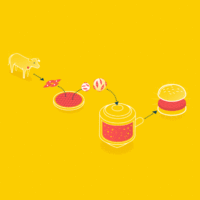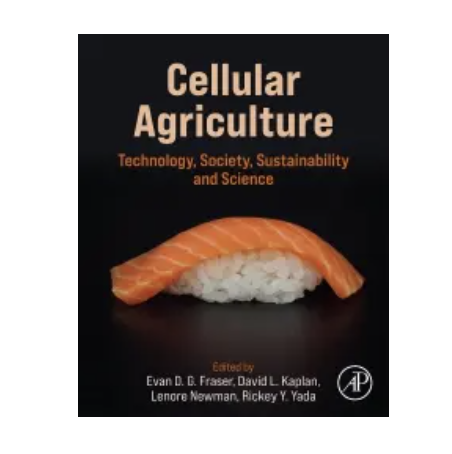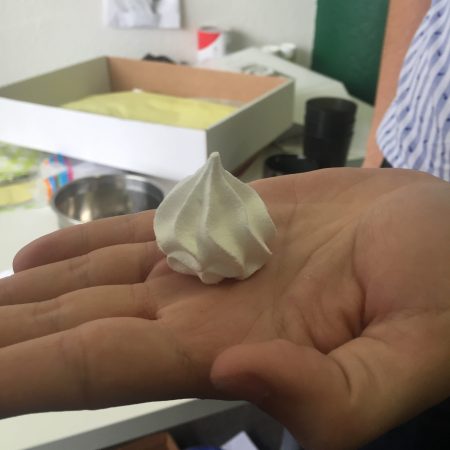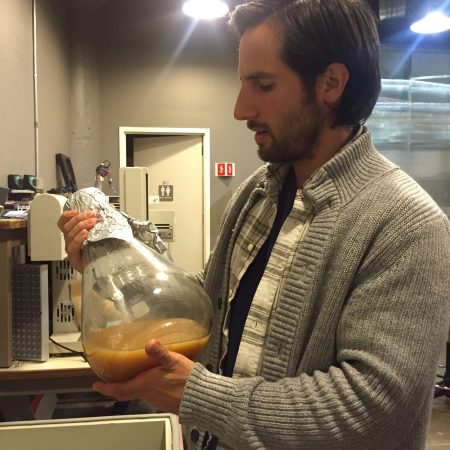- Overview
- Background
- Behind-the-scenes
Overview
For decades, humanity has produced high value, small volume proteins, enzymes, and small molecules via cell cultures. What if we leveraged decades of experience in industrial fermentation to produce egg proteins this way?
That is exactly what New Harvest community members Arturo Elizondo and David Anchel set out to do as the New Harvest Egg Project.
The New Harvest Egg Project eventually turned into Clara Foods (now The EVERY Company), the world’s first company to grow egg whites from cell cultures instead of hens.
As of April 2021, The EVERY Company has launched the world’s first animal-free animal pepsin and partnered with AB InBev to scale production of their egg proteins.
New Harvest currently holds founding equity in The EVERY Company. With it, we are building an endowment for future cellular agriculture research.
Due to the explosion of private investment in cellular agriculture following the success of The EVERY Company, New Harvest no longer starts companies.
Behind-the-scenes
At the beginning of The EVERY Company’s journey, we documented updates about the project here.
The EVERY Company is now too big for us to keep track of what they’re up to. They are also an independent company! To stay up-to-date on The EVERY Company’s latest developments, please visit their website.
- The EVERY Company’s hen-free egg white meringue
- David holding a yeast culture capable of producing egg white proteins.
Updates
October, 2021 – Clara Foods rebrands as The EVERY Company.
February, 2015 – New Harvest publishes an interview with Arturo and an interview with David.
March, 2015 – In light of growing independent interest among investors in cellular agriculture, New Harvest moves away from founding companies. Instead, we focus on more neglected aspects of ecosystem building and supporting pre-competitive research.
December, 2014 – The New Harvest Egg Project is renamed Clara Foods and accepted into IndieBio SF, an accelerator which provides lab space and funding.
November, 2014 – David Anchel, Arturo Elizondo, and New Harvest unite as the New Harvest Egg Project.
See More Initiatives

Artificial Intelligence and Machine Learning in Cellular Agriculture
Cost and scale are major blockers to cellular agriculture's success, but they are complex technical and economic challenges. Artificial intelligence (AI) and machine learning (ML) techniques could help to accelerate much of this work, but there is very little public literature on the various applications and benefits. Given the potential exponential impact of AI/ML, New Harvest and Alberta Machine Intelligence Institute (Amii) launched the AI in Cell Ag Initiative.

Safety Initiative Phase III: Precompetitive Collaboration on Safety Research and Methods Development
The Cultured Meat Safety Initiative (CMSI) is a joint initiative between New Harvest and Vireo Advisors aiming to address critical technical, methodological, and informational challenges related to evaluating the safety of cultured meat (CM) products.
CMSI involves the convening of diverse stakeholders, including industry, governmental scientists, regulators, academic researchers, and others. Gaining such varied perspectives advances public knowledge and the practice of food safety for CM products by identifying and addressing data gaps. Research conducted to develop data and methods build the necessary support elements for the emerging ecosystem, which can raise regulatory and consumer confidence, support industry efforts toward commercialization, and improve the efficacy of evaluation processes of regulatory safety reviews.
Building on progress from Phase I and Phase II of CMSI, New Harvest and Vireo Advisors are now working to convene diverse stakeholders to create the infrastructure for shared knowledge, methods, and data that address the priorities identified in Phase I and II. Our long-term goal is to coordinate and launch regional efforts to develop and validate analytical methods for CM safety analysis and use these methods to generate datasets that can be made publicly available to support transparent food risk assessments and policy-making processes.

The Foundational Cellular Agriculture Textbook
Cellular Agriculture: Technology, Society, Sustainability and Science was designed to be the go-to reference for everyone in cellular agriculture - the textbook found in every company’s office, in every university lab, and in every aspiring student’s backpack.
The text provides a state-of-the-art review of cellular agriculture technologies, presenting foundational information with practical application insights. There are chapters on regulatory and policy issues, as well as reviews of the sustainability challenges of alternative proteins.
It is the first resource of its kind to take a practical approach to review the design, feasibility, and implementation of cellular agriculture techniques. With additional chapters on life cycle analyses and ideal transition scenarios, this book provides a resource for aspiring technology developers and academics alike seeking evidence-based assessments of the industry and its disruptive potential. The textbook was written by industry and academic experts for a balanced perspective of the field today and to inspire and shed light on a path forward.



